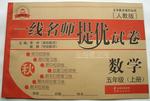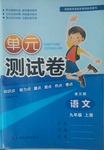题目内容
After the earthquake hit northeast Japan on March 11, 2011, many touching stories that I saw with my own eyes happened around me.
I had to walk home since all the ________ had stopped after the quake. On my way home I ________ an old Japanese lady at the bakery shop who was giving out free bread, which made my heart ________. A middle-aged Japanese man was holding a sign that said, "Please use our ________." He was ________ his house for people to go to the restroom.
My friend wanted to ________ others. He stood in the cold with a sign "If you are okay with a motorcycle, I will ________ you to your house." And then I saw him take one gentleman home, all the way to faraway place!
Then the next day I drove to ________ my car with gas. There was a ________ gas now and many gasoline stations were either closed or had very ________ lines. I got ________, since I was behind 15 cars. Finally, when it was my ________, the man smiled and said, "________ this situation, we are only giving $30 worth gas per person. Is that alright?" "Of course, I'm just glad that we are all able to ________," I said. His smile gave me so much ________.
I saw a man at the evacuation(疏散) center ________ when people brought food to him, It was the first time in three days that food has been brought to their center. However, after he wiped the tears, his next ________ surprised me. "I am very ________ that we are provided with food. But people in the city next to us haven't ________ any food at all. Please go to that centre as well." And when hearing that, I realized there is a bright future on the other side of this ________.
1.A. trafficB. rescueC. communicationD. businesses
2.A. missedB. caughtC. noticedD. heard
3.A. hungryB. softC. brokenD. warm
4.A. toiletB. hotelC. hospitalD. house
5.A. advertisingB. openingC. repairingD. decorating
6.A. encourageB. saveC. chargeD. assist
7.A. driveB. followC. leadD. send
8.A. startB. fillC. checkD. wash
9.A. plentyB. lackC. varietyD. diversity
10.A. directB. straightC. longD. short
11.A. worriedB. luckyC. excitedD. annoyed
12.A. timeB. turnC. dutyD. decision
13.A. Apart fromB. Together with
C. Because ofD. Instead of
14.A. shareB. offerC. tolerateD. transform
15.A. comfortB. pleasure
C. troubleD. entertainment
16.A. waitingB. grabbingC. sleepingD. crying
17.A. promisesB. rolesC. actionsD. words
18.A. upsetB. gratefulC. surprisedD. proud
19.A. boughtB. suppliedC. preparedD. received
20.A. cityB. centerC. lessonD. disaster
 一线名师提优试卷系列答案
一线名师提优试卷系列答案 阳光试卷单元测试卷系列答案
阳光试卷单元测试卷系列答案
